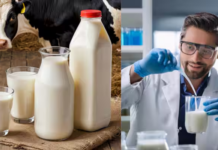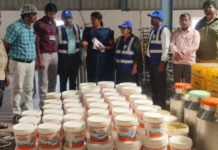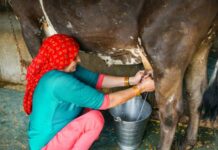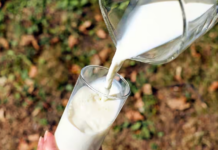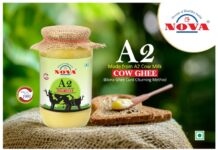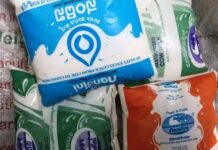New Delhi, November 28, 2020: A major challenge in transporting Covid-19 vaccines is the ultra-cold temperatures required for the purpose. Except for the vaccine being developed by Oxford University-AstraZeneca, which can be stored in normal household refrigerators with a temperature range of 2 degrees to 8 degrees Celsius, all the others — Pfizer-BioNTech, Sputnik-V and Moderna — require a temperature of anywhere between minus 18 degrees to minus 90 degrees Celsius.
It turns out, India does have a limited cold chain capability to offer ultra-low cold temperatures, thanks to the infrastructure in place to transport the semen of bulls used for artificial insemination of cows across the country. For the record, the semen collected from bulls is transported at minus 196 degrees Celsius — much lower than the lowest temperature required for a Covid-19 vaccine, which is for the Pfizer-BioNTech vaccine candidate that needs to be stored between minus 60 degrees to minus 90 degrees Celsius.
Since sperms are destroyed even at room temperatures within 15 minutes of collection, they are first diluted and stored in small vials — called straws — which are then sealed and frozen in liquid nitrogen containers. This is an idea that has been in use in the US since the 1950s by cattle breeders there and was later adapted for use for organ transplantation and blood banking.
Liquid nitrogen, which is inert, colourless, odourless, non corrosive, nonflammable and extremely cold, is produced by compressing and cooling the gas to below its boiling point, which is minus 195.79 degrees Celsius. It is also available in plenty from the chemical fertiliser units, with Indian being the world’s second largest producer and also as a by-product of liquid oxygen plants according to the reports published in bangaloremirror.indiatimes.com.
Moreover, the containers used for transporting the semen also have huge capacities, with a 35 litre container able to house 2,500 straws while a 48 litre one can accommodate 15,000 straws. However, given the huge numbers involved in the distribution of any potential Covid vaccine, the dairy sector’s cold chain infrastructure can at best be an add-on and unlikely to complement the need for an effective vaccine distribution network.



